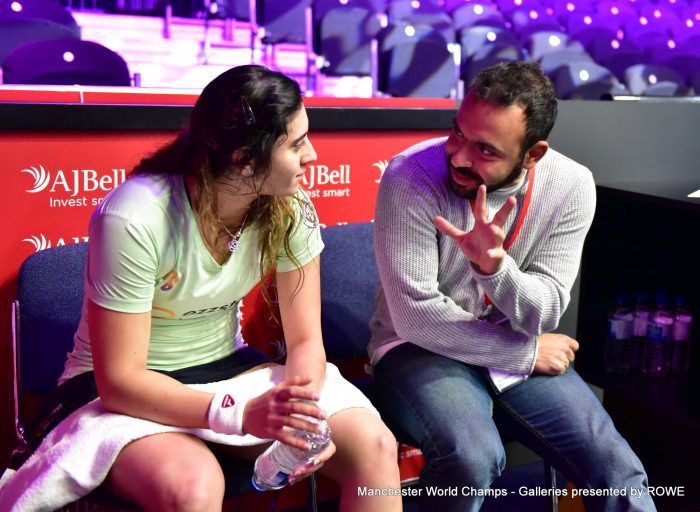Whether tackling things from a technical, tactical, physical, or mental perspective, there are numerous avenues to explore when it comes to boosting your squash performance. One potentially very valuable tool you can simply and easily incorporate is a proper post-match analysis and performance evaluation process.
To help you with this post-match review process, we’ve put together a SquashSkills sheet to help guide you toward the most important performance-related elements that need to be evaluated and appraised.
You can download the sheet here – SquashSkills’ Post-match Analysis Sheet.
In the ongoing quest for improvement, it’s common to see amateur players watching highlights and attempting to model elements of their technique on that of the top professionals. Equally, many amateur players will work on their physicality by emulating the elites and attempting some of those gruelling bike sprint or court sprint sessions inspired by their favourite pros.
One area in which you much more rarely see amateurs taking their cues from the professionals, however, is in their post-game habits. The evaluation and review process is a key component in most pro player’s routines, yet it’s something that few amateur players ever take the time to explore and implement.
 Elite professional players will typically travel with their coaches for the major tournaments, while players further down the ranking list usually make do with just phone conversations and emails with
Elite professional players will typically travel with their coaches for the major tournaments, while players further down the ranking list usually make do with just phone conversations and emails with
their coaches while away competing. Either way, in the majority of cases some form of coach-player discussion will take place post-match, where there is an assessment of the match performance. Depending on the player and coach in question, this may take shape as either a formal evaluation process or as just a more informal discussion.
However it’s carried out, the purpose of this post-match review is to identify areas of concern, highlight aspects that need to be improved upon, and consider the positives and negatives that can be taken from the performance. It’s much easier to do this while things are still fresh in the mind, hence why these discussions typically take place within 24hrs of the match conclusion.
The benefits this process gives is in helping to identify and really isolate exactly where the emphasis needs to be placed to further improve and develop ready for the next match. Now for many amateur players, this may initially seem somewhat excessive and not entirely relevant to their standard of play – it could well be argued, however, that it’s actually potentially an even more important area for amateur players, where certain simple tweaks and switches in tactical or technical approach can often have a far more immediate and significant effect than at the elite level.
Most amateur players, of course, don’t have the luxury of the services of a coach they can call on at any hour to discuss their match performance. By taking notes post-match though, you can quickly and easily capture your considered reflections on the game to allow you to further drill down into your key areas for improvement later, when planning your next training sessions – be that in conjunction with a coach, or working on your own.
For those players that already keep training diaries, post-match analysis sheet can be a great addition to that – giving you a slightly more structured, practical review of each match that you play. Get into the habit of completing the questionnaire as soon after you play as you can, although leaving long enough to let the anger subside and a more reflective mood to replace it if going through the sheet after a tough loss!
Whatever level you play at, a bit of considered review and reflection on your match performance can be a really useful tool, particularly when used in conjunction with a more comprehensive periodical evaluation procedure.
Download the sheet (SquashSkills’ Post-match Analysis Sheet) and give it a try, and see how a post-match review process can begin to help clarify your weaknesses and guide your improvements.
Gary Nisbet
B.Sc.(Hons), CSCS, NSCA-CPT, Dip. FTST
SquashSkills Fitness & Performance Director
Want to learn more about mental approach to training and match play?
Check out the series where Peter Nicol takes us through the mental preparation needed to succeed and stay focused when building up to a match.
Watch now